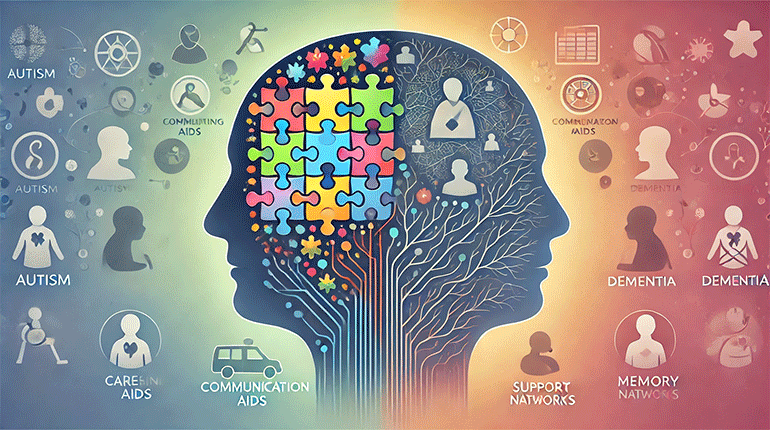Dementia and Autism: Overlapping Challenges
The intersection of dementia and autism presents a complex and relatively under-researched area of healthcare. Autism, or Autism Spectrum Disorder (ASD), is a developmental condition characterized by differences in social interaction, communication, and behavior. Dementia, on the other hand, is a progressive neurological condition that impairs cognitive functions such as memory, reasoning, and communication. While the coexistence of these conditions is rare, the growing number of older adults on the autism spectrum makes it an important area of study.
Exploring the Rare Cases of Dual Diagnoses
Although dementia is primarily associated with aging, there are rare instances where individuals with autism may develop dementia in later life. This overlap can occur due to shared risk factors or coexisting conditions. For example, genetic conditions like Down syndrome significantly increase the risk of both autism and Alzheimer’s disease. Moreover, lifestyle factors such as limited physical activity or poor diet, which may be more prevalent in some individuals with autism, could potentially elevate the risk of vascular dementia.
The challenges in diagnosing dementia in individuals with autism are compounded by the overlap of symptoms. For instance, difficulties in communication and social interaction, hallmark traits of autism, may mask the early signs of dementia. Cognitive changes that are subtle in the general population might be more challenging to detect in autistic individuals, making early diagnosis and intervention particularly complex.
Comparing Social and Communication Challenges
Dementia and autism both significantly affect social and communication skills, but in distinct ways. In autism, challenges in social interaction may include difficulty understanding social cues, forming relationships, or adapting to new environments. These challenges are often lifelong and deeply rooted in the brain’s developmental architecture.
Dementia, however, leads to a progressive decline in previously acquired social and communication skills. For example, an individual with dementia may struggle to recall words, follow conversations, or recognize familiar faces. While autism is associated with differences in processing social information, dementia introduces a gradual erosion of these abilities, further complicating an already challenging area for individuals with autism. This dual burden can make social engagement and communication even more difficult for individuals with both conditions.
Strategies to Address Unique Caregiving Challenges
Caring for individuals with a dual diagnosis of autism and dementia requires a highly tailored approach. Caregivers must navigate the unique challenges posed by both conditions while providing compassionate and effective support. Key strategies include:
Individualized Care Plans: Developing personalized care plans that account for the individual’s autism traits and the progression of dementia can help manage their needs effectively. For example, maintaining consistent routines and environments can reduce anxiety and confusion.
Enhanced Communication Techniques: Caregivers should adapt communication strategies to align with the individual’s preferences and abilities. Visual aids, simplified language, and patience are essential tools in this context.
Training for Caregivers: Providing specialized training for caregivers can equip them with the skills needed to manage complex behaviors and provide emotional support. This includes understanding sensory sensitivities common in autism and recognizing dementia-related cognitive changes.
Multidisciplinary Collaboration: Involving professionals from diverse fields, including neurology, psychology, and occupational therapy, ensures a holistic approach to care. Regular assessments and adjustments to the care plan are critical as the individual’s needs evolve.
Support Networks: Establishing robust support networks for both individuals and their caregivers is essential. Peer support groups, online forums, and community resources can provide valuable emotional and practical assistance.
While much remains to be understood about the intersection of autism and dementia, increased awareness and research are crucial for improving outcomes. By acknowledging the unique challenges of dual diagnoses and implementing tailored strategies, healthcare providers and caregivers can offer meaningful support to individuals navigating this complex journey.
References
American Psychiatric Association. (2024). “Autism Spectrum Disorder.” Retrieved from https://www.psychiatry.org
Alzheimer’s Society UK. (2024). “Dementia and Autism.” Retrieved from https://www.alzheimers.org.uk
National Autistic Society. (2024). “Understanding Autism in Older Adults.” Retrieved from https://www.autism.org.uk

